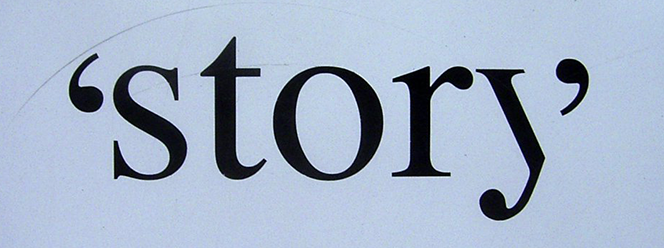
by Tara Joyce | May 4, 2017 | Cultural Creativity, Featured, Self/Business Growth
Every relationship you develop, from the most casual to the most intimate, serves to help you become more conscious.
We are taught to honour others, yet often this is one of the most difficult acts we can perform. For not only does it require us, first and foremost, to honour ourselves, it also requires us to come to know our Self. In a larger sense, your relationships are spiritual messengers, they bring into your life revelations about your own strengths and weaknesses.
Some of your relationships may be particularly painful (and necessarily so) as they’re here to help you to learn about yourself and your limitations. You may not be so enthusiastic to explore these “less attractive” aspects of self, yet recognizing your power to make choices and how they affect your world is the power of relationships. Your painful relationships help you to understand that every choice you make contributes to what you create. Choice is the process of creation itself.
Every choice you make is a creative act of spiritual power for which you are held responsible. Managing this power of choice, with all its spiritual and creative implications, is the essence of human experience. Yet you can’t know the full outcome of any choice you make, and so you may find yourself trying to control your life, and the life of others. Disappointment inevitably ensues since, try as you might, the physical world (and the people you are in relationship with) cannot be controlled. Your desires and whims are not for life to serve you on a silver platter.
Which returns you to the place where the greatest power you have is how you choose to behave in your relationships. Your relationships (especially the painful ones) help you to master your inner responses to the external world. They teach that you get to choose your thoughts and emotions.
The power and challenge of your relationships is to learn what motivates you to make the choices you do. In learning about what motivates you, you learn about the essence of your Self. Sex, power, and money are the currencies of relationships and your fear and/or faith is the energy you put behind this currency. This dynamic of choice, of fear and faith, guarantees you cannot run away from yourself or your decisions. For every outcome in some extent reflects this faith and/or fear.
To discover your personal motivations and your “false gods,” how you use and misuse the currencies of the physical world, you need relationships. So much of the way you respond to external challenges is how you respond to yourself. To guide you in developing a healthy and loving relationship with yourself, you have your relationships as a mirror. They are awakening you to your true personal power.
photo credit: Toa Heftiba

by Tara Joyce | Aug 25, 2016 | Cultural Creativity

How do I balance my innate human desire to estimate how long something will take, with the reality that I often have little control over this truth?
Is the point to do my best in estimating, to get a general sense, and then to leave it? Is the point to do some planning, but to never decide that my expectations are true and correct? Is the point to create motivation to work towards the goal, rather than attaching to its timeline?
Perhaps our time estimates are funny games we play with our Self and with each other, in support of our motivation. If we think it’ll only take 2 years to realize, this feels more motivating than the 7 years it actually takes. Perhaps, we’d never undertake the action if we truly knew how much we’d need to put into it to achieve it. Perhaps, our collective need for estimates and time projections is simply a trick we play on our mind and ourselves, to encourage us to take the action in the first place.
We want to feel it won’t take that long to realize. We want to believe that other things in our life won’t arise and take us away from that goal, at least temporarily.
We, in our culture of instant gratification, want so badly for our dreams to be as easy to manifest as the things available to endlessly consume. We’d love to realize our dreams NOW. We’d love to bypass all the other work we haven’t factored into our plan. We’d love if we didn’t need to work on our Self in order to realize our dreams.
We’re only human. We can’t know until we know. But perhaps in coming to accept how arbitrary our timelines are, we can provide that understanding to others. Perhaps, because of this, one day, we’ll find ourselves relinquishing the power Time has over us.
When used kindly, timelines and estimates inspire us into action. When used unconsciously, they leave us feeling not good enough. We’ll likely never meet the exact timelines we set, so why not see and set them more truthfully? Let’s own that we create them to feel more in control of something (Life) than we truly are.
Your timelines and your planning undeniably support you in starting and in making movement, and yet it’s likely your goal will take longer than expected to realize. It seems this is the way it is. Be weary of yourself or anyone else who leaves you feeling less than because you haven’t yet reached your goals. Remember, as long as you’re working towards them, you’re a work in progress and you’re on your way.
photo credit: Scott Akerman

by Tara Joyce | Jan 27, 2016 | Cultural Creativity, Personal Branding, Self/Business Growth

In whatever shape it may take, whenever I hear a story, I find myself wondering how it is serving the person who is telling it. I understand what’s being presented is not the whole story, and perhaps, it’s not even half. It’s the version of the story the storyteller wants to share with me and it’s the version of the story they want to see.
We can have a lot of unconscious motivations and intentions behind the stories we tell, and while it would be lovely to think they are all pure and love-filled, this may not be true. We share stories to share a story—to share a version of events that we feel will be emotionally impactful. It’s not the truth per say, otherwise we might call it that.
I suppose I don’t put a lot of value on my own stories and those of others. They are there to entertain and educate, but to hold them as “the truth” and/or to hold my own experiences up to them in comparison, feels like a fool’s game. A story might sound complete but the truth is, it only contains the parts wanted to be shared, the parts that keep it intact and “true.” The whole truth is far more nuanced and complex than any story can tell.
Stories by their definition and essence are leading. They are meant to take you on a journey where the course has already been planned. We need to see stories as such, for our own health and happiness. We need to know they are not “the truth,” and are not intended to be. They are simply creations of our experience and our imagination, and how we need to perceive things. There is no need to attach to them.
Write your stories. Love your stories. And acknowledge them for “the truth” they are not. See the stories you attract—and are attracted to—for what they are: expressions of you, and how you perceive your world.
photo credit: duncan c

by Tara Joyce | Jun 24, 2015 | Innerpreneurship, Personal Branding

There’s always a goal. In every communication, in every expression, there is always a goal. It may not be conscious and it may not be visible, but it is there. Whenever we communicate, we do it for a reason.
In both our business communication scenarios and our personal ones, our goals design and determine what we achieve, and what we receive. Through our language and logic, our (conscious and unconscious) goals reveal themselves; and through our resulting action, these goals are realized.
When we take the space to consider our goals before we take action and communicate, we support our selves in consciously creating effective communications. For when we consider what we want to achieve and why we are communicating, we’re taking responsibility for ensuring our expressions are authentic. And that we’re consciously creating the reality we desire.
4 Conscious Communication Goals
For your next communication, consider:
- Your Information: Are you sharing essential information?
- Your Motivation: Are you inspiring action?
- Your Professionalism: Are you elevating your credibility?
- Your Brand: Are you supporting your values and value?
If you’re answer is ‘No’ to any of the above, it’s probably a good idea not to communicate until you’ve done more internal work and can answer each with a ‘Yes’. In taking this space, each time you and/or your business chooses to communicate, you’ll feel confident you’re creating a growth opportunity.
photo credit: Sergio Pani







